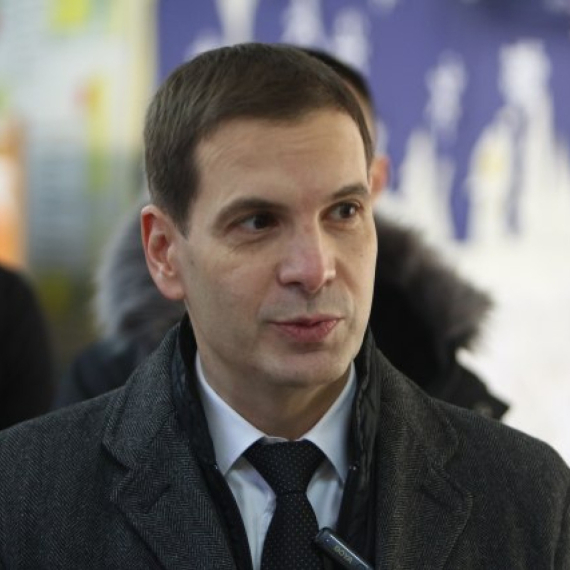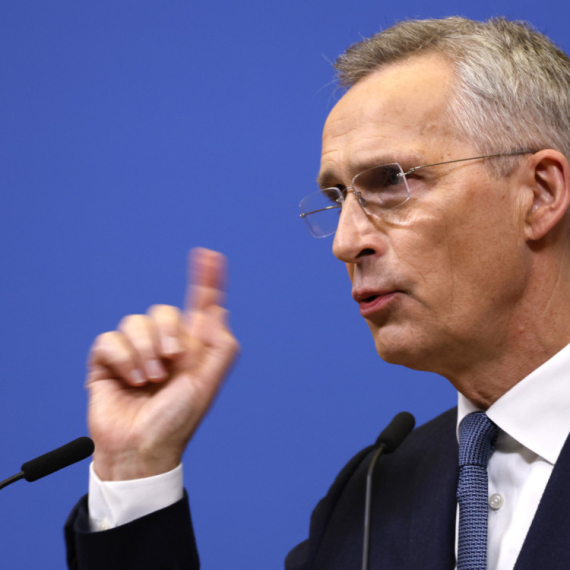PM: Early elections unnecessary
Prime Minister Mirko Cvetković told a Belgrade magazine that there is "no reason for early parliamentary elections" in Serbia.
Thursday, 17.12.2009.
16:28

Prime Minister Mirko Cvetkovic told a Belgrade magazine that there is "no reason for early parliamentary elections" in Serbia. Speaking for Ekonomist magazine, the premier said that Serbia achieved "serious results this year in preserving the economy and establishing political and economic cooperation with the world's leading powers", while at the same time making "big steps toward the EU". PM: Early elections unnecessary "Respectable forces in parliament are gathered around such a government policy," Cvetkovic was quoted. He repeated that Belgrade intends to make its decision regarding the date for submitting the EU candidacy status application "in consultations with its European partners", and that the subject will also be on the agenda of the European Integrations Council when it meets. "In any case, the decision will be made at the most opportune moment for Serbia," said Cvetkovic. The premier expects the issues of European integrations and the status of Kosovo to "remain in two separate tracks, as is the official EU position now". Speaking about Serbia's public power enterprise EPS, Cvetkovic revealed that it will not undergo a "classic privatization". "EPS will be privatized in a certain way, and in several phases," he was quoted as saying, and explained that this would come "in order to avoid mistakes made by some countries". The prime minister told the magazine that while EPS now has a monopoly position in the production and distribution of electricity, "soon some big companies will enter the market, when they appear as the competition of EPS in the production of electrical power". He reminded that tenders are currently underway for power plants Kolubara B and Nikola Tesla (TENT), where investments of some EUR 2bn are expected, while new majority owners should be strategic foreign partners, whose participation in the production of electricity would reach 20 percent. As for Telekom Srbija – the country's telecommunications company – Cvetkovic said the strategic decision to "enter the privatization procedure" has not been withdrawn, stressed that the enterprise is doing "fairly well", and that this should be taken into account during its privatization. The prime minister also said that Serbia's pharmaceutical giant Galenika is the only company the sale of which is expected to bring in "significant income" in 2010. Mirko Cvetkovic (Tanjug, file)
PM: Early elections unnecessary
"Respectable forces in parliament are gathered around such a government policy," Cvetković was quoted.He repeated that Belgrade intends to make its decision regarding the date for submitting the EU candidacy status application "in consultations with its European partners", and that the subject will also be on the agenda of the European Integrations Council when it meets.
"In any case, the decision will be made at the most opportune moment for Serbia," said Cvetković.
The premier expects the issues of European integrations and the status of Kosovo to "remain in two separate tracks, as is the official EU position now".
Speaking about Serbia's public power enterprise EPS, Cvetković revealed that it will not undergo a "classic privatization".
"EPS will be privatized in a certain way, and in several phases," he was quoted as saying, and explained that this would come "in order to avoid mistakes made by some countries".
The prime minister told the magazine that while EPS now has a monopoly position in the production and distribution of electricity, "soon some big companies will enter the market, when they appear as the competition of EPS in the production of electrical power".
He reminded that tenders are currently underway for power plants Kolubara B and Nikola Tesla (TENT), where investments of some EUR 2bn are expected, while new majority owners should be strategic foreign partners, whose participation in the production of electricity would reach 20 percent.
As for Telekom Srbija – the country's telecommunications company – Cvetković said the strategic decision to "enter the privatization procedure" has not been withdrawn, stressed that the enterprise is doing "fairly well", and that this should be taken into account during its privatization.
The prime minister also said that Serbia's pharmaceutical giant Galenika is the only company the sale of which is expected to bring in "significant income" in 2010.
















































Komentari 0